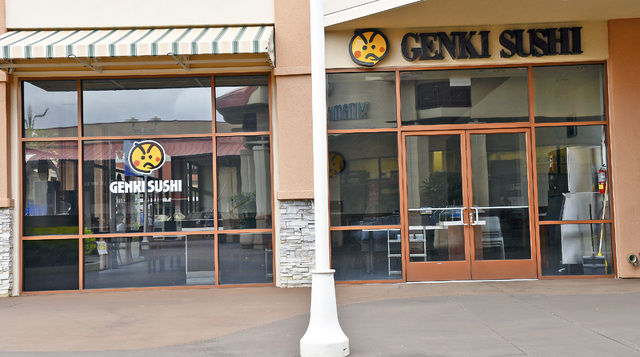LIHUE — Pharmacies on Kauai have been busy keeping up with the flow of customers requesting hepatitis A vaccinations. The pharmacy at the Lihue Safeway, for instance, brought the vaccinations in specifically after the Monday announcement that DOH was closing
LIHUE — Pharmacies on Kauai have been busy keeping up with the flow of customers requesting hepatitis A vaccinations.
The pharmacy at the Lihue Safeway, for instance, brought the vaccinations in specifically after the Monday announcement that DOH was closing down Genki Sushi chain store locations on Kauai and Oahu due to raw, frozen scallops that were contaminated with hepatitis A.
Kari Concepcion, a pharmacy technician at the Safeway in Lihue, said the number of customers was slowly tapering off on Thursday, but staff members probably administered 50 shots every day for the first three days of the week.
“It seems that most of the people had eaten there (Genki Sushi),” Concepcion said. “Some (people) had flown recently to Oahu, but mainly the people had eaten (Genki Sushi) here.”
She said as the week has progressed, fewer people are stopping by for a vaccine.
“It seems a little slower today,” she said on Thursday. “But we still have prescriptions (that need filled).”
The Lihue Safeway opened in September of last year, and until recently the pharmacy has offered only flu and shingles vaccines. There are two pharmacists on staff and and two technicians – but not all of them are on duty all the time.
“Today we have just one pharmacist and yesterday and Tuesday there were two,” Concepcion said.
Wednesday, the Hawaii Department of Health confirmed a total of 206 hepatitis A cases in Hawaii. As of Tuesday, two of those cases were on located on Kauai. DOH did not return Thursday requests for an update on the number of hepatitis A cases on Kauai.
In a Thursday news release, DOH said tests conducted by the U.S. Food and Drug Administration on products collected for sampling did yield positive results for hepatitis A in wild harvest, raw, frozen Sea Port Bay Scallops that were previously identified as the source of the outbreak.
The product originated in the Philippines and is produced by De Oro Resources Incorporated. It’s imported by Sea Port Products Corporation, located in Washington State according to the release.
“This laboratory confirmation is important validation of our investigation findings,” said State Epidemiologist Dr. Sarah Park. “We are also grateful to the public for their active role in adding critical pieces to solve the puzzle.”
DOH is recommending anyone who ate at Genki Sushi within the last 50 days to monitor their health, and those who ate there within the last two weeks to see their doctor and talk about possibly getting a vaccination or immune globulin.


